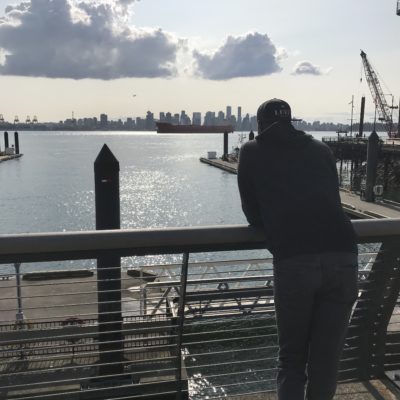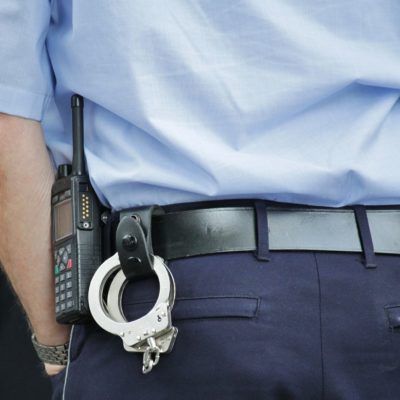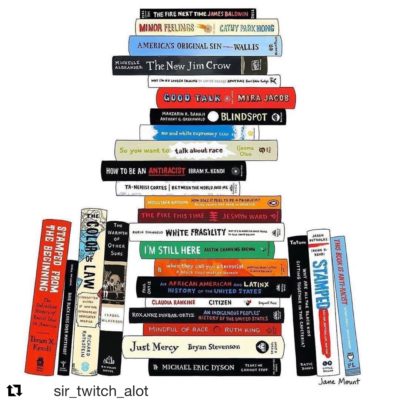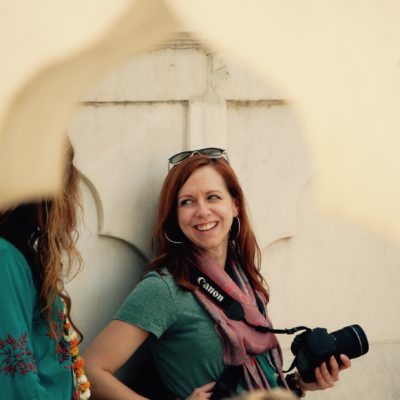The Experience That Changed My Perspective On White Privilege
 Despite working extensively with underrepresented populations both at home and in other countries, I experienced the visceral reality of systemic racism for the first time on a sunny March afternoon just last year. My boyfriend came to Vancouver to celebrate my birthday, and we took the sea bus to visit the sleepy city of North Vancouver. After lunch and a visit to a local health food store so Drew, a chef, could check out what Vancouver had to offer, we strolled through the city, enjoying the sunshine and each other’s company–a rarity with our often long-distance relationship.
Despite working extensively with underrepresented populations both at home and in other countries, I experienced the visceral reality of systemic racism for the first time on a sunny March afternoon just last year. My boyfriend came to Vancouver to celebrate my birthday, and we took the sea bus to visit the sleepy city of North Vancouver. After lunch and a visit to a local health food store so Drew, a chef, could check out what Vancouver had to offer, we strolled through the city, enjoying the sunshine and each other’s company–a rarity with our often long-distance relationship.
The quiet was pierced by the blare of sirens as four police cars came screaming up the hill–an unusual sight in North Vancouver. Their cars abruptly crossed the four lanes and encircled us. Eight police officers jumped out. I looked behind me, confused about what was happening. My heart started beating fast as they approached Drew.
I saw the aggression in their eyes.
“Keep your hands where I can see them,” one officer yelled.
“Take off your hoodie,” said another.
A female officer’s voice trembled as she told another officer to check his belt line. I couldn’t wrap my head around the fear she felt for this man who crafts delicate pastries, shows up for friends and family any time they need him, and nurtures and holds space for me, more than any other partner has.
“What is going on?” I don’t know if I actually said the words out loud or just screamed them in my head.
“Show me your phone.” An officer demanded.
Drew said he needed to reach into his pocket to get out his phone. They snatched it.
“Whose phone is this?”
“It’s mine,” he said.
 “We received a complaint that a couple matching your description stole a cell phone at knifepoint. Show us your ID.” They pointed the question only at him.
“We received a complaint that a couple matching your description stole a cell phone at knifepoint. Show us your ID.” They pointed the question only at him.
They didn’t ask to look inside my purse or see my phone or ID. They concentrated all of their attention and aggression on Drew. Profiling him simply because he’s Black.
At some point, two onlookers stopped to bear witness in what seemed like solidarity, in case things took a turn for the worse.
Drew didn’t defend himself or get angry. He did exactly as the officers asked, and when they tried to justify their actions he said, “I don’t need to know the story. I just need to know that I get to go home after this.”
When they finally got back in their cars and drove away, I stood shaking — tears of anger and disbelief spilling onto my cheeks. Both at the way the officers treated Drew and the realization that someone likely made a false claim against us. I can’t imagine that particular Saturday afternoon in a small city with a Black population of less than 1%, another couple matching our exact description (6’5” black male and 5’6” white female) happened to steal a cell phone within the same 10 block radius. I also couldn’t wrap my head around the need for eight cops to respond to what they thought was a petty theft at knifepoint. I couldn’t help but wonder how different the response might have been if Drew had been white.
“It’s not right,” My voice trembled as I tried to get a handle on my emotions.
“It’s not right,” he said, “But, this is the world I live in.
This experience and our ongoing discussions about race have opened my eyes to my privilege and what systemic racism really means. With the death of George Floyd, one more painful example of racism and police brutality, and the protests rising up across the country, it’s time to wake up from our slumber of white privilege and ask ourselves what we can do to create actual change.
 The book, So You Want To Talk About Race, has helped me see that racism is about so much more than how we behave personally, or even what we think as individuals. Even if we personally believe in equality for everyone, we (white people) – simply because of the color of our skin – have benefitted from systems created in our interest, and this legacy goes back hundreds of years. The time for change is now. We need to broaden our perspectives so we can help change the broken system(s). If you are wondering where to start, listen to this podcast: Brené with Ibram X. Kendi on How to Be an Antiracist, where Ibram X. Kendi makes the distinction that the opposite of racist is not “not racist” – it is actually “anti-racist”.
The book, So You Want To Talk About Race, has helped me see that racism is about so much more than how we behave personally, or even what we think as individuals. Even if we personally believe in equality for everyone, we (white people) – simply because of the color of our skin – have benefitted from systems created in our interest, and this legacy goes back hundreds of years. The time for change is now. We need to broaden our perspectives so we can help change the broken system(s). If you are wondering where to start, listen to this podcast: Brené with Ibram X. Kendi on How to Be an Antiracist, where Ibram X. Kendi makes the distinction that the opposite of racist is not “not racist” – it is actually “anti-racist”.
In addition to listening to podcasts, I’ve started reading more books (see those in the image here), following social justice leaders on social media, and researching how I can make a difference – knowing there is always more that I can learn and do.
It can be tiring and emotionally draining to do this kind of learning and self-reflection. But, here, within the A Fresh Chapter community, we believe in personal growth and serving others. I can’t imagine a more important cause right now than to get educated and stand with the Black members of our community to fight for change.
Growth is not comfortable. I’m sure most of us will say or do the wrong thing, maybe multiple times. This kind of learning is challenging, but we are not the victims here. We will listen, learn, and think about what we can do – as a community – to create change.
If you want to join us for this month’s AFC Live, Wednesday, June 24, 2020 at 5 pm PT/ 8 pm ET, we’ll be elevating the voices of our diverse alumni as we explore the theme of Expanding Perspective. Click here to learn more about AFC Live and sign up to join us.



Comments (4)
Thank you for being open and honest in sharing this terrifying experience that hits too close to home for even Black Canadians. Too many white people think these situations are isolated to the United States. The reality is Canada suffers the systemic racism too.
Thank you for sharing Isabel. I can only imagine all you have had to face and how blind so many of us have been. We need to create change on both sides of the border.
Thank you for sharing this experience, and my thanks to Drew for his willingness to share too.
Thank you Tricia. I really appreciate the support.